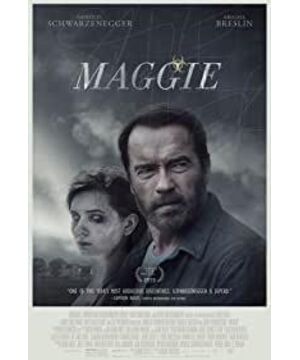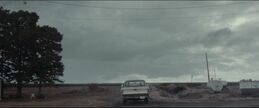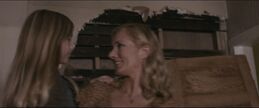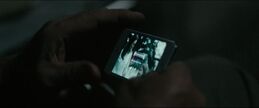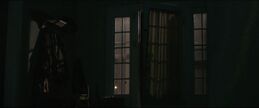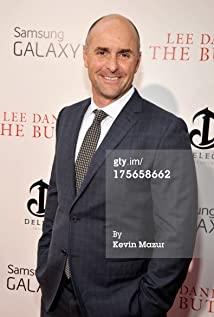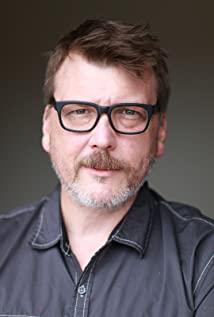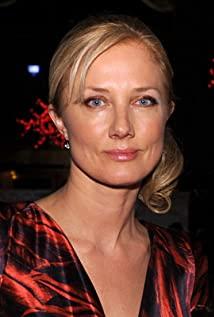——Russo: "A Discourse Upon The Origin And The Foundation Of The Inequality Among Mankind"
These are two films about loneliness and fear:
Description of "Maggie" This is a society where zombie viruses spread. Maggie was attacked by zombies and infected with the virus. The society already has a set of enforcement mechanisms for patients. They are forced to be sent to quarantine areas, said to be resettlement. In fact, everyone knows that they are waiting to die. Others have the power to kill the patient without any criminal liability. Maggie's father took his daughter home from the hospital and took good care of her before her illness reached the level of mandatory placement. There are other classmates who got sick with Maggie, they face the rejection of others and treat them differently. In the end, Maggie ended her life by suicide before completely losing herself.
"Blindness" (Blindness) describes another disease-ridden society, a virus that spreads rapidly like a cold, and the infected person will be blind. At the beginning, the blind were sent to a prison-like hospital for placement, but as the disease spread rapidly, the entire country fell into a state of out of control. The heroine is the wife of a doctor (played by Julianne Moore, we will call her J). She is the only person in society who is not blind. She protects her husband while surviving in society, and even pretends to be blind to integrate into the group. People in society as a whole are gradually adapting to blindness. Blindness has become a "normal" state, and some people gradually recover from blind diseases without warning.
§ Lonely figure
consultations are mostly one-to-one, in an independent and hidden space. In that space, all the secrets were opened, as if two people were not in a reinforced concrete cube, but in a tree hole. The counselor is the elf in the tree hole, and the talker is an ordinary person who communicates with the elf. Walking out of the tree hole and returning to the real world, everything experienced in the tree hole is like a dream, but it is a dream that will affect reality.
A person is not equal to loneliness. The counselor is a person, and the person who talks is also a person, but the person who talks is a lonely object, and troubles often come from being isolated in the relationship. Conflict with your parents, looks good with your partner, secretly competes with friends, and pulls with your own inner voice.
Loneliness is not a bad thing. Because of loneliness, we can organize our hearts. Just like reading a book or writing a report, there is a TV and other people nearby, so there is no way to concentrate. You must put yourself in a state where you can calm your mind and have no distractions, so that you can fully focus your attention on the affairs in front of you, and then do things well.
But the most difficult thing is in this focus of attention, and the way it lasts. Many external interferences have been internalized by us.
Maggie's father loves her very much. Even though others have warned him to send his daughter to the resettlement area as soon as possible, and even his wife refuses to say goodbye because of fear, he still stays at home alone. When Maggie was seriously ill, he was sitting on the sofa holding a shotgun, and a hungry Maggie walked to his father and sniffed his hair, as if he would take his father's life at any time. But in the end Maggie didn't show her fangs to her father, as if her inner willpower finally made a big decision, she stepped onto the roof and jumped.
§ On the opposite side of fear
, Maggie was killed by disease. She saw her partner who was suffering from the same disease, just as she heard other people's stories, a patient who was the same age as her, died in the hands of her parents. Being killed by one's own parents is a terrifying thing, but the voice of reason and the values of society tell the members of the society, "We are doing this for everyone's good." Maggie's inner rationality heard the voice of society, but at the same time faced the inner fear.
In fact, Maggie is destined to die, and society cannot tolerate her. She is the "other" in society, not treated as an adult, but treated as an object. She is a thing, not a person. Only in the eyes of Maggie's father, she is a human and a daughter. He never left his daughter, and used the simple and most important thing to appease his daughter's fear, which is "selfless love."
In my opinion, this film echoes Susan Sontag’s "Illness as Metaphor" (Illness as Metaphor). As Sontag said, disease itself is not as simple as we know. Various metaphors.
Maggie is like an early HIV carrier. People fear her not only because of the disease itself, but also the message behind HIV, which is "unclean", "disreputable", and "evil", and awakens people's self-righteousness. Fear of death.
Fear itself is like loneliness, not a negative inner activity. Fear protects our hearts and keeps us away from things that might hurt us. Just like people suffering from the rare disease "Congenital Insensitivity to Pain", their bodies cannot be alert to all kinds of pain signals, instead they lose their defense against all kinds of dangers.
The opposite of fear is the need for security. Everyone has this need, just behave in a different way. From a certain point of view, citizens’ views on the execution of the death penalty are also a manifestation of a sense of security: people who support the execution of the death penalty believe that the death penalty can achieve a disciplinary effect and comfort the hearts and minds of the victims’ families; opponents believe that the death penalty cannot solve society The fundamental problem of tranquility has lost the function of prison education. It seems that the positions of the two sides are conflicting. In fact, they are all seeking a solid foundation for social stability, which is also a sense of personal inner security.
§ The risk of alienation is
different from Maggie. J is a healthy woman, but her integrity has become a minority in the society she lives in. When everyone else fell blind, in order to maintain a harmonious position in the group, she concealed the fact that her eyes were sharp. These sharp eyes allowed her to see a scene around her clearly, and at the same time to see through the changes brought about by disease control in society as a whole.
People's needs are reduced, and it takes a lot of effort to survive just to survive. Blind people who were originally socially disadvantaged, because they have early adaptability to the environment under blindness, have become the objects of other people's reliance and have been promoted to the position of leader. The depravity after possessing power and the broken individual relationships with old values have made people very ugly. Everything that seemed to be orderly turned out to be so vulnerable.
If the number of zombies reaches an overwhelming majority in the society of "Daughter of the Family", perhaps those normal people will have to act as zombies in order to continue to survive in the society. In contrast to the society we live in, sometimes the blue camp wins, and sometimes the green camp wins, regardless of which party wins and becomes the majority, not becoming "majority violence."
Originally, J only wanted to hide in the society silently, take care of her husband, and a few kind-hearted friends. But when social justice was not there, she had no choice but to use her physical condition that was far superior to other people to maintain social justice.
I think of the movie "Superman", Superman has abilities beyond ordinary people on earth, but he just wants to be an ordinary person. However, the society forces him not to be an ordinary person. People who deceive the good and fear evil harm the society, which is equivalent to harming his rights and the rights of those he loves and cares about at the same time.
Superman is so lonely, just like J. They are forced to act against the society that violates their own personality, and this behavior is not welcomed by most people at the same time. Behind ability is danger, and danger triggers fear. People respect and fear Superman. When they regard Superman as a superhuman being, they actually don't treat him as a human being.
Superman was squeezed out of the familiar society and became the Other.
§ Between generations: The
loneliness and fear of me, you, and others detonate various conflicts between generations. The previous generation used negative terms such as "strawberry tribe" to explain their understanding of the next generation, and the next generation used social environment and the injustice and unevenness of the management to fight back. The conflicts between generations are like diseases. In fact, every generation has diseases of every generation. Once tuberculosis was prevalent, HIV used to be synonymous with death, and now there are new diseases. Each generation has to have different methods to face different diseases. Taking the successful experience in the treatment of tuberculosis, applying it to the treatment of HIV is not necessarily helpful, and vice versa.
Different eras (generations) are pursuing the antidote to social stability, but behind it is to satisfy their own sense of security. When young people face the same ten-year, or even worse, starting salary and general environment, and throwing themselves into society in a daze, it's like jumping into a bottomless ocean. That's a scary thing. The previous generation told them, "Don't be afraid, that's how we swam past." But the problem is that this sea and that sea are completely different, and empty forms of comfort cannot achieve practical effects.
Someone who came to the talker once asked such a question, "He cares about his friends very much, but often his friends are used to face their inner problems with silence. This troubles him because he doesn't like being silent."
I he asked: "you say you want to help your friend, then you can think about is not it, for your friends, how is the most comfortable state, not for you most comfortable state?"
beginning of the article , I quoted a passage from Russo in "On the Origin and Foundation of Human Inequality", and finally I will quote another passage as a conclusion:
We support a monarch because he can protect us from others. The slavery of a master.
Loneliness can help us reflect, and fear can protect us from danger. The sense of security is not built on other people, only on ourselves. No matter how much we have, we have the right to seek the satisfaction of a sense of security. In this process of seeking, we may be lost for a time, so that we are injured or injured. But this is the process of life. "How can one not get a knife in the world."
However, what a sense of security requires is more emotional attention rather than rational criticism. Similarly, when we reject certain people, maybe we should face our loneliness and fear instead of projecting our loneliness and fear in various violent ways.
Maybe one day I have an incurable disease, maybe one day I become a blind man. If our heart can feel the sincere warmth of others, it may give us more courage to live than if we live in a healthy but extremely cold condition.
View more about Maggie reviews


